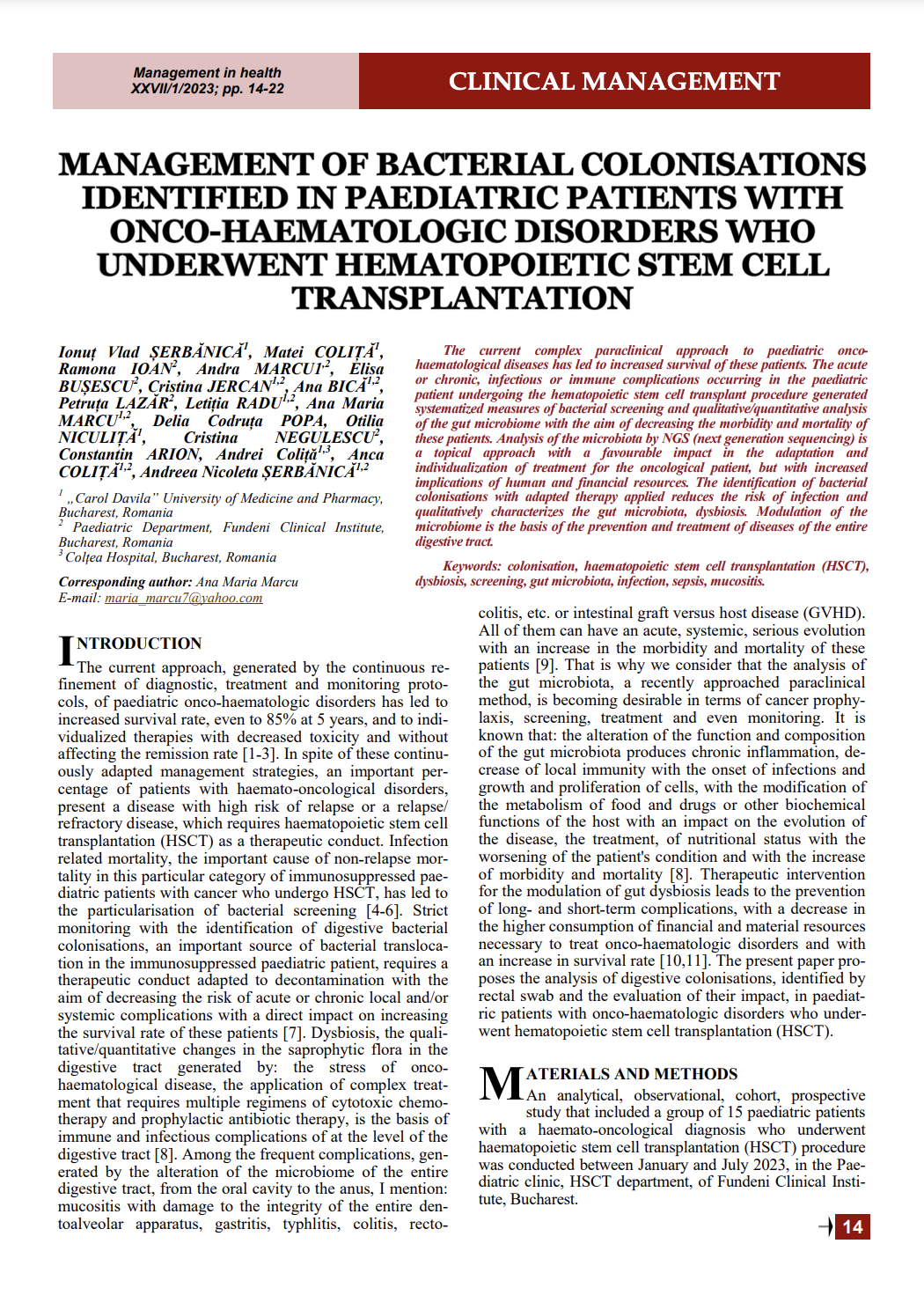Abstract
The current complex paraclinical approach to paediatric oncohaematological diseases has led to increased survival of these patients. The acute or chronic, infectious or immune complications occurring in the paediatric patient undergoing the hematopoietic stem cell transplant procedure generated systematized measures of bacterial screening and qualitative/quantitative analysis of the gut microbiome with the aim of decreasing the morbidity and mortality of these patients. Analysis of the microbiota by NGS (next generation sequencing) is a topical approach with a favourable impact in the adaptation and individualization of treatment for the oncological patient, but with increased implications of human and financial resources. The identification of bacterial colonisations with adapted therapy applied reduces the risk of infection and qualitatively characterizes the gut microbiota, dysbiosis. Modulation of the microbiome is the basis of the prevention and treatment of diseases of the entire digestive tract.

